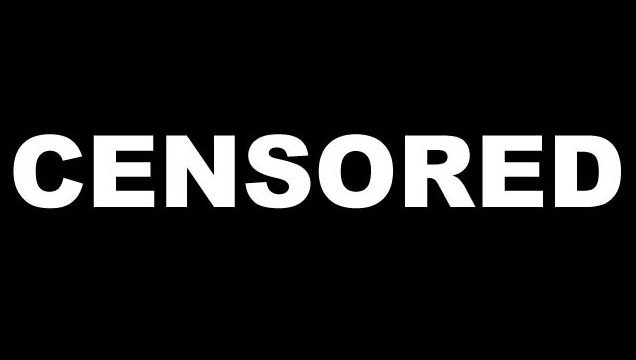ND Legislation Would Classify Your Internet Connected Device as a “Pornographic Vending Machine”

Under the sweeping restrictions imposed by HB1185, currently before the 2017 legislative session in Bismarck, any device which is capable of connecting to the internet would be classified a “pornographic vending machine.” The legislation would also mandate content filters for these devices blocking “obscene material or obscene performances” is in place.
If you want the filter removed you have to pay a $20 fee to “help offset the secondary harmful and social effects of products that distribute the internet and make internet content available.” That’s a fee which could add up very quickly. In my very connected household we have three smart phones, four desktop/laptop computers, five tablets, an internet router, and six television streaming devices. That would see me paying $380 under this legislation for the privilege of not having my content filtered.
The proceeds from this fee will go to the tax commissioner who will deposit the revenues in “the crime victims restitution and gift fund.” It’s not clear to me how this law applies to existing devices in the state.
You can read the full legislation below. Here’s the excerpt defining everything from your cell phone to your desktop computer to your internet-connected television as a porn vending machine:
And here’s the mandate for a digital content filter for these porn vending machines we all own:
Here’s the definition in current law of what constitutes “obscene” material or performances. Make no mistake, from these broad definitions, that we are not talking about child pornography or revenge pornography or the sort of content most of us would agree is and should be illegal. We are talking about consensual material made by adults for other adults:
The legislation also includes provisions requiring the blocking of online “prostitution hubs” and websites that promote human trafficking.
Here’s the multi-step process you must go through if you want to rid your product of state censorship. Spoiler alert, it requires that you first get a lecture about the potential dangers of unfettered access to the internet:
It’s a class C felony if an uncensored device is sold to a minor. It’s a class A misdemeanor if a device is sold to an adult who didn’t go through the rigmarole of getting the censorship filters removed.
There’s more, but you can read the rest of the legislation below.
The prime sponsor on this legislation is Rep. Lawrence Klemin, a Republican from District 47 in Bismarck, and it has a bipartisan group of co-sponsors. I’ve reached out to Klemin for comment.
The legislation is colossally stupid on a couple of fronts.
First, the paternalistic notion that North Dakotans need the state to implement a content filter for our internet devices is offensive. Yes, I know that Republicans declared pornography a “public health crisis” in their national platform, but that conclusion doesn’t pass the smell test. The idea that all pornography is fundamentally unhealthy to our society is simply wrong.
One might argue that declining trends in sex crimes, even as pornography has become more readily available via the internet, is proof that the opposite is true.
Second, implementing this sort of policy at the state level is entirely impractical. It mandates that the manufactures, distributors, and retailers of any device with which you might be able to load up some pictures of naked people ensures that a content filter is in place or else be guilty of a crime. But North Dakota is, relatively speaking, a tiny market for things like smart phones and tablets and laptops. Are manufacturers going to be willing to go through the motions of complying with this law to access our tiny market?
More likely they will sue on the grounds that this sort of censorship mandate is illegal, and they’d probably win.
Even at the national level enforcing this sort of law would be a nightmare. There would quickly develop a black market for disabling or working around the filters, I’m certain.
Third, there are major privacy implications here. A government mandate for filtering online content would mean some sort of official monitoring of the content we all access. You think that wouldn’t be abused?
It’s really pretty shocking that we would see this sort of legislation in 2017. The internet has been around for a long time now. It’s not 1995 any more. Most people have figured out how to avoid, both for themselves and their children, the sort of prurient content that’s available out there. There are plenty of content filtering tools on the market for people who want to avail themselves of it.
Let North Dakotans choose for themselves whether they want their internet content filtered.
Here’s the full bill:
[scribd id=336183797 key=key-23quJy0t8VkWOGI5WsXG mode=scroll]








